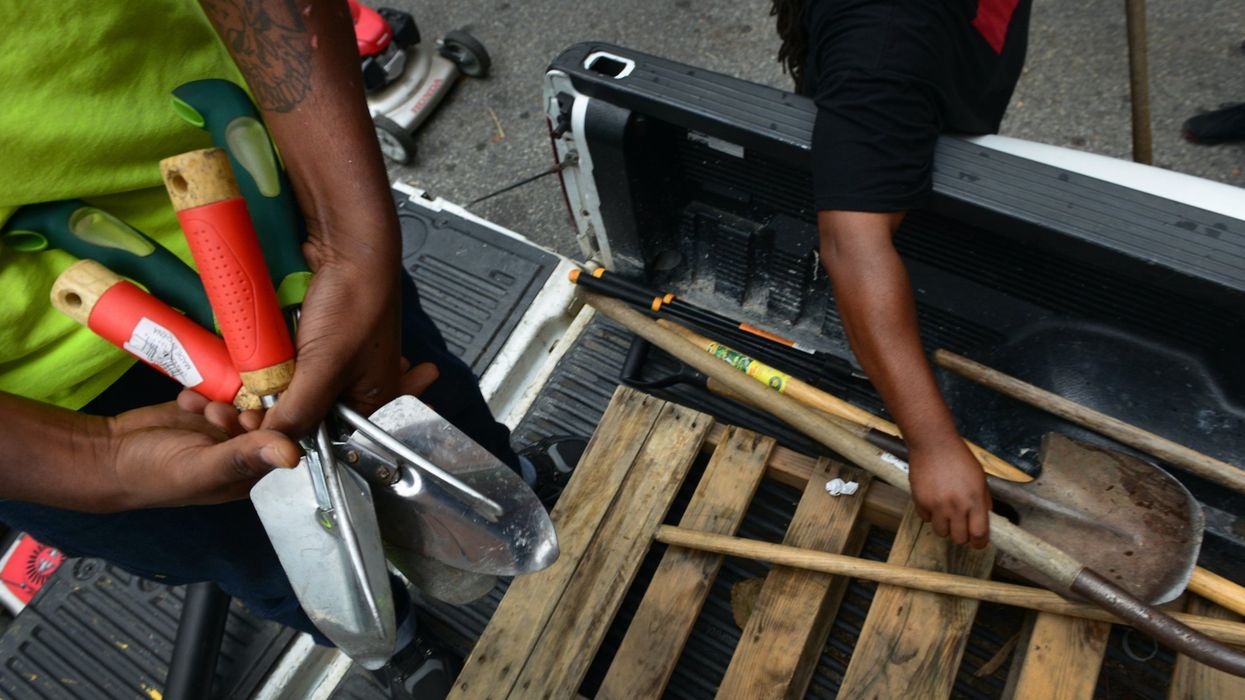Savita Halappanavar, a 31-year-old dentist who died at an Ireland hospital in October following a miscarriage at 17 weeks, may not have actually asked doctors for an abortion before she died, an Irish Times reporter admitted.
Ever since her tragic death, abortion activists have argued that Ireland's abortion laws were responsible. However, during an interview on Ireland's "Coleman at Large" radio program, Irish Times reporter Kitty Holland said hospital records do not show Halappanavar requesting an abortion.
 A woman holds a picture of Savita Halappanava during a candle lit vigil outside Belfast City Hall, Northern Ireland, Thursday, Nov. 15, 2012, for Savita Halappanavar, the 31-year old Indian woman who was 17-weeks pregnant when she died of blood poisoning after suffering a miscarriage in Galway, Ireland, on 28 October. (Credit: AP)
A woman holds a picture of Savita Halappanava during a candle lit vigil outside Belfast City Hall, Northern Ireland, Thursday, Nov. 15, 2012, for Savita Halappanavar, the 31-year old Indian woman who was 17-weeks pregnant when she died of blood poisoning after suffering a miscarriage in Galway, Ireland, on 28 October. (Credit: AP)
 Demonstrators hold placards and candels in memory of Indian Savita Halappanavar in support of legislative change on abortion during a march from the Garden of Remembrance to the Dail (Irish Parliament) in Dublin, Ireland on November 17, 2012. (Credit: AFP/Getty Images)
Demonstrators hold placards and candels in memory of Indian Savita Halappanavar in support of legislative change on abortion during a march from the Garden of Remembrance to the Dail (Irish Parliament) in Dublin, Ireland on November 17, 2012. (Credit: AFP/Getty Images)
The newspaper originally published the story with the headline "Woman 'denied a termination' dies in hospital." However, now Holland, the reporter who wrote the article, is now saying she "can't tell for certain."
"I can’t tell for certain — who knows what will come out in that inquiry. They may come back and say… there was no request for termination," she said.
PersonhoodUSA has more details on this developing story:
Radio host Coleman found discrepancies in the timeline reported by Holland and the Irish Times. Holland claimed that her article was based on an interview of Savita’s husband, and that his recollection “may be a little muddled.”
“It is shameful that the small faction of abortion fanatics in Ireland have tried to exploit the tragic deaths of Savita and her child to further their cause,” stated Josh Craddock, Personhood USA’s United Nations Liaison. “The damage by the Irish Times article by Kitty Holland has been done, and there are dire consequences – the extremist abortion groups of Ireland are now pushing legislation for unrestricted abortion on demand, against the will of the people.”
Physicians worldwide agree that even if an abortion had been requested, Savita’s life could not have been saved by the dangerous procedure. India’s well-respected Dr. Divakar was quoted by The Hindu, stating: “Based on information in the media, in that situation of septicaemia, if the doctors had meddled with the live baby, Savita would have died two days earlier.”
Abortion is illegal in Ireland, and doctors there are required to intervene to save a mother whose life is at risk. Ireland has among the world’s lowest maternal mortality rates.
It was the Irish Times' report that first sparked the uproar over whether or not Halappanavar's life could have been saved if the baby was aborted. It was insinuated that doctors allowed her to die because of the country's strict abortion laws.
When Holland was asked to explain the discrepancies in her initial reporting, she told Coleman that Halappanavar's husband, Praveen, and his solicitor gave their accounts of what happened and she used those to write the article.
“All one can surmise is that his recollection of events — the actual timeline and days — may be a little muddled… we only have Praveen and his solicitor’s take on what was in or not in the notes," she said. "We’re relying all the time on their take on what happened."
She continued: "Oh, I’m not satisfied of anything. I’m satisfied of what he told me, but I await as much as anyone else the inquiry and the findings. I can’t tell for certain — who knows what will come out in that inquiry? They may come back and say she came in with a disease she caught from something outside the hospital before she even arrived in, and there was no request for termination…"
Listen to the clip from "Coleman at Large" here:
The Pro-Life Institute responded harshly to what it sees a a "deplorable exploitation of a tragedy."
“Holland and the rest of the Irish and international journalists never referred to any ‘muddled’ recollections or to the possibility that there ‘was not request for a termination’ when abortion campaigners were shrieking that Savita had died because she couldn’t get an abortion,” Niamh UÍ Bhriain said. “This has been the most cynical and deplorable exploitation of a tragedy that I have ever witnessed in my lifetime.”
“At a time when Indian newspapers are printing headlines saying that ‘Ireland Murders Pregnant Indian Dentist’ perhaps it is time for the truth to emerge from the Irish Times,” she said.
This story has been updated.

 A woman holds a picture of Savita Halappanava during a candle lit vigil outside Belfast City Hall, Northern Ireland, Thursday, Nov. 15, 2012, for Savita Halappanavar, the 31-year old Indian woman who was 17-weeks pregnant when she died of blood poisoning after suffering a miscarriage in Galway, Ireland, on 28 October. (Credit: AP)
A woman holds a picture of Savita Halappanava during a candle lit vigil outside Belfast City Hall, Northern Ireland, Thursday, Nov. 15, 2012, for Savita Halappanavar, the 31-year old Indian woman who was 17-weeks pregnant when she died of blood poisoning after suffering a miscarriage in Galway, Ireland, on 28 October. (Credit: AP)





